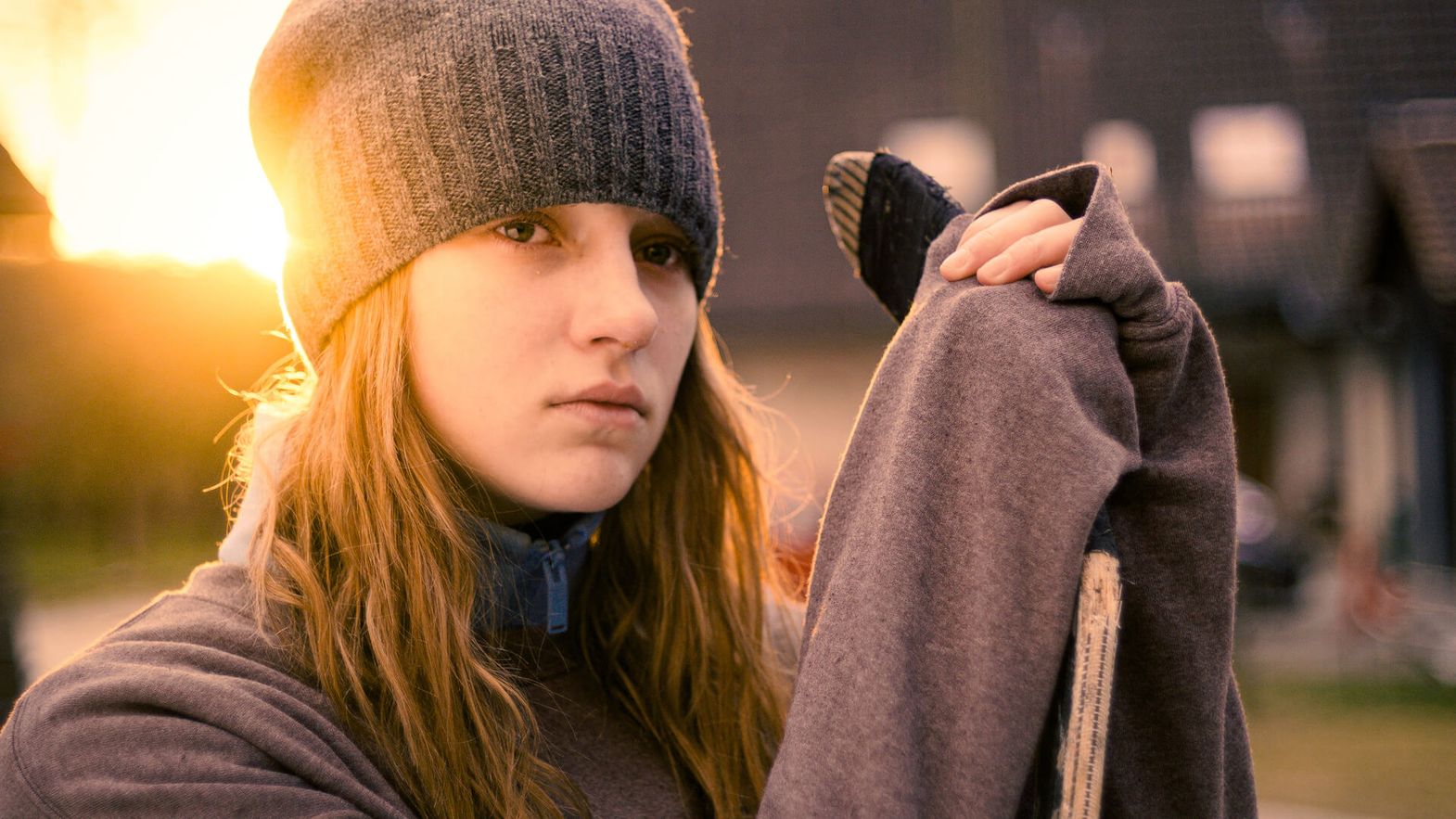 © Beauvoir Films
© Beauvoir Films
Sometimes one needs to run in order to find the right way. That happens to Manon, a seventeen-year-old girl who decides to leave her home in the Swiss Alps to try to find the father she hasn’t seen in a long time. Once she settles in her new environment, the passion for hockey and the determination to become a professional player is her next goal. But it isn’t easy to overcome fear, frustration, rage and a self-destructive side, probably linked to her repressed sexuality.
Rivière is a Swiss-French coproduction that tries to talk about the struggle of young people in a world that doesn’t seem to listen to them, to understand their fears or their desires. After a series of successful short stories, first-time director Hugues Hariche portrays a delicate but strong female character in a drama that looks specifically at realism without avoiding to look for the depth of the characters and situations. He is never invasive with his camera – but at the same time, always ready to catch the intimacy of the atmospheres, the director reaches the souls of his movie. Starting like a gripping character study and human drama, Rivière develops with coherence in a sport movie, without forgetting the importance of Manon’s personal life. The result is a feature film that never slips into superficial melodrama, on the contrary it reaches highs of tenderness and intimacy, especially when the main character understands her feelings toward the equally troubled Karine. The screenplay written by Hariche in collaboration with Joanne Giger doesn’t impose the fictional structure to the events, but just seems to let things happen, following with precision the evolution of Manon and the people close to her. If the movie works that well, credit must be also given to the soft but gripping performance by Flavie Delangle, who portraits Manon without going over the top in any single scene. Next to her, equally convincing and delicate, even in a character more at risk of becoming a stereotype like Karine, is a sharp Sarah Bramms. The chemistry between the two actresses is the heart and soul of the movie, developing a relationship which is not rhetoric but finds the truth of the unspoken, of soft lights and whispering music. There is a lot of kindness, a lot of tenderness behind the wounds and the scars of Manon and Karine, and Hariche wants to show that much more than the other elements of personalities that could have led to a well-worn melodrama. This doesn’t happen with Rivière, which instead depicts a desolate setting and painful characters without making them pointlessly overdramatic. The result is something true, seemingly delicate, almost fragile but precious. And when Manon enters the game and faces her own inner demons, it’s almost impossible not to root for this troubled but relentless young woman.
Adriano Ercolani